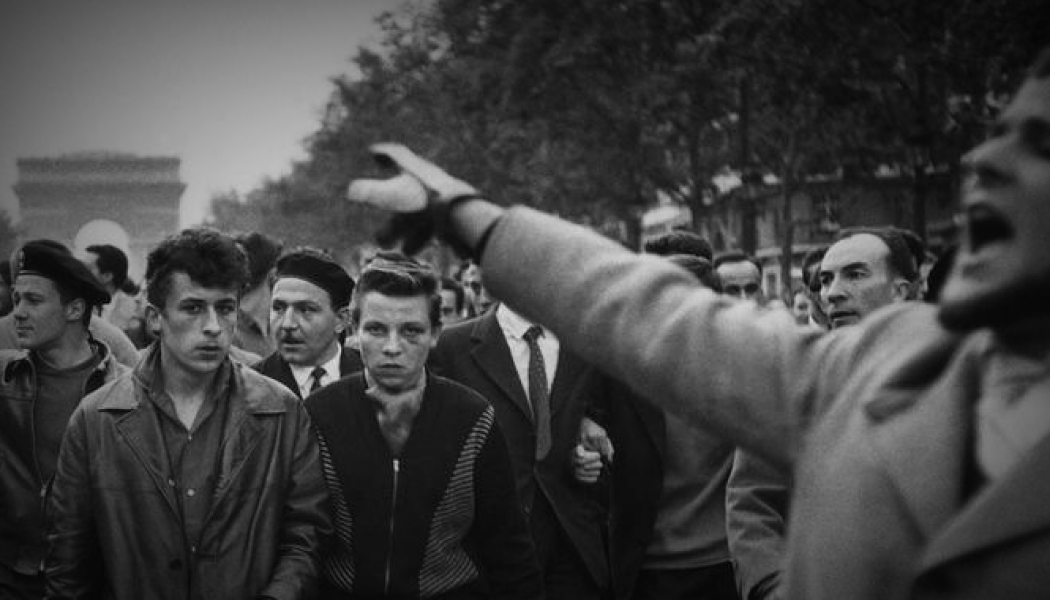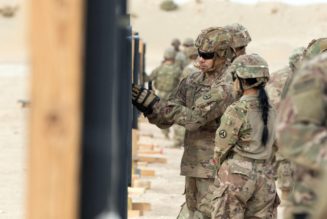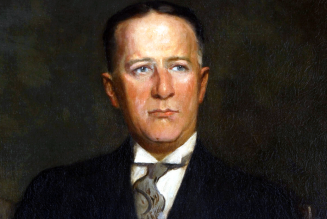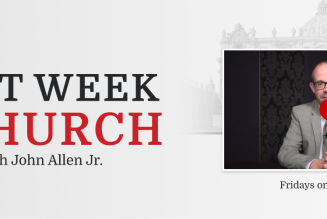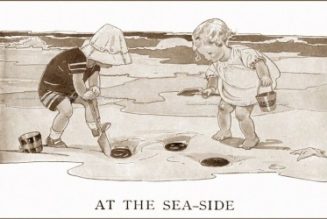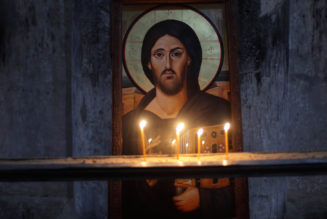A glance at the news headlines gives the very real impression that the world is in flames. Who can deny that we are in a tremendous state of turmoil, reeling from one crisis only to enter another one?
I’ve refrained from commenting on the unfolding events we are seeing because the world does not need more opinions or commentary right now. But after further reflection and observation, I do want to speak, not on the complex and multifaceted cultural issues we face, but rather about the spiritual dangers and temptations that threaten us in the current milieu.
The Temptations We Face
The first temptation we face is that of the twin emotions of fear and anger. These two vices are closely related, but they are both equally inimical to the spiritual life.
Mass media thrives on spreading fear. Fear drives clicks, it draws viewers, which means more ad revenue for media corporations. Images of morgues or men in hazmat suits fighting an invisible virus are terrifying. Likewise, images of burning buildings, rioters smashing and looting, and police violently arresting people, played in an endless loop and plastered over our social media feeds, inspires intense anxiety.
As a result, fear is a tremendous temptation. When we afraid, our primary concern is survival. At a physical level, the executive center of the brain is shut off and the amygdala, the seat of the fight or flight response, engages. Neurochemicals like adrenaline are released, preparing us to go on the attack. In other words, we become less rational, living not so much by virtuous ideals or moral principles, but by sheer animal instinct. At a spiritual level, we cease to live by Christ’s commandments and surrender to the law of physical survival alone, which is inherently violent.
Anger, as I have said, is closely related to fear. It is what drives us to destroy and kill, if not physically, then with our thoughts and words. It is what prompts us to want to crush or extinguish the opposition. It is the same spirit that drove the disciples to want to call down fire from heaven on those who were opposed to them, a desire which Jesus soundly rebuked (Luke 9:51-55).
The danger of anger is that an angry person nearly always believes their anger is justified, whether or not it is true. We feel in the right when we are angry, or we would simply not be angry. Moreover, we can become quickly addicted to a state of outrage. I have seen countless times Catholics using Jesus cleansing the temple as an excuse to indulge in the adrenaline-fueled high of anger.
Anger, however, is inherently destructive, never constructive. At times, righteous anger is justified in defense of the good, but it is always inherently dangerous unless we have reached a very high spiritual purification—which truth be told, most of us have not.
St. James tells us that wars, fighting amongst ourselves, and destruction are usually the result of our lusts, our sinful passions raging within us like jealousy, envy, and pride (James 4:1-4). We are told to be angry and sin not, but this state is difficult to attain, and again, we are often deceived into believing we aren’t sinning when we are. Anger is a fire that can consume and destroy. We must be tremendously careful with it or we will be easily overcome and swept away by it.
The next temptation we face, closely related to the previous, is that of hatred. When we are angry and afraid, we look for an enemy to blame, a scapegoat on which to place responsibility for the sins of the world. That inevitably becomes anyone who is not like us, anyone who is different. We pin all the evils of the world on those who are right or left, conservative or liberal, those of different political persuasions, or perhaps of a different religion, philosophical orientation, economic class, or ethnicity.
But inevitably, when we associate a specific group with responsibility for the evils of the world, we begin to hate that group as much as we hate the evils they are supposedly responsible for. We begin to vent our rage at them, killing them if not physically, at least in our thoughts and words. With cries of “Deus Vult,” we imagine ourselves raining God’s judgement on our temporal enemies, or picture them writhing in the flames of hell, entirely forgetting that we wrestle not against flesh and blood, but against ancient and powerful spiritual forces.
Christ said, “The [devil] comes only to steal, and kill, and destroy” (John 10:10). When we indulge in such hatred, we are drinking deeply of the satanic spirit of destruction. Such animosity is toxic to the soul, quickly extinguishing the flame of love by which the soul lives, plunging us into spiritual darkness.
Finally, we face the temptation of equating the way of Jesus Christ, the way of the gospel of peace, with weakness. I recently saw a Catholic on Facebook bragging about how, in response to recent news, he had modified his high-powered shotgun to inflict maximum destruction on others. This is not the spirit of Christ. Violence is at times justified, as is self-defense and the defense of our families, the weak, and the innocent. But violence for violence’s sake should never be delighted in. It is always a tragedy, something to be grieved over, though sometimes a necessary evil.
The accusation hurled against those who advocate peace over violence is that of cowardice, weakness, or effeminacy. But the truth is the exact opposite. Anyone can give in to his lower impulses toward violence and anger. That is really quite easy, for they are powerful feelings, and indulging in them is the most natural thing in the world. But restraining your tongue, your fist, your social media comments, even your thoughts—now, that is difficult. It takes a tremendous amount of strength and self-control to harness the impulse to destroy, especially for us men who are naturally aggressive. This is the strength Christ possessed, for he had more power than any being in the universe but never once used it to kill, inflict violence, or destroy his enemies.
We Must Choose the Way of Peace
These are the temptations we face in our times of chaos and destabilization. Fear, anger, hatred, and violence—these are all too natural. But we are not called to be natural, but supernatural. If we are to live as Christians in an evil world, we must choose the way of peace.
The way of peace does not mean ignorance of the evil in the world. We are called to be wise as serpents and harmless as doves—fully aware of the darkness around us, but choosing the path laid down for us by Christ, which is the way of reconciliation, love, and redemptive suffering. What is this path? Here are but a few commandments from scripture:
“Blessed are the peacemakers: for they shall be called the children of God.” Matthew 5:9
“Be not overcome of evil, but overcome evil with good.” Romans 12:21
“But I say unto you which hear, Love your enemies, do good to them which hate you” Luke 6:27.
“But I tell you, do not resist an evil person. If anyone slaps you on the right cheek, turn to them the other cheek also.” Matthew 5:39
“Do not repay evil with evil or insult with insult. On the contrary, repay evil with blessing, because to this you were called so that you may inherit a blessing.” 1 Peter 3:9
“And when his disciples James and John saw it, they said, ‘Lord, do you want us to tell fire to come down from heaven and consume them?’ But he turned and rebuked them.” Luke 9:54-55
“‘Put your sword back in its place,’ Jesus said to him, ‘for all who draw the sword will die by the sword.’” Matthew 26:52
In choosing to become men of peace in a world of violence, we bear witness that we live according to the higher law; not the law of nature or the law of the jungle, but the law of Christ. We fight not with weapons of flesh and blood or heated, hateful rhetoric, but with prayer, humility, love, good works, and self-discipline. Moreover, to paraphrase the great Russian author Aleksandr Solzhenitsyn, we recognize that the real evil is not somewhere out there, but within every human heart, yours and mine. Self-condemnation, then, and the struggle of repentance is the real battle to which we are called.
The way of peace, which is the way of Christ, is not popular. It will not give you an adrenaline rush, the high of self-righteous disdain for others, or the thrill of mob violence, rhetorical or physical. It will not garner clicks and shares on social media, nor contribute to fear-induced panic buying. But it is nevertheless the way of the cross, the way of sacrificial self-giving to which we are all called by the Master, Jesus Christ.
Two ways lie before you: The way of power, aggression, opposition and hatred—which is the way of the world—or the way of Christ, who said, “Blessed are the peacemakers, for they shall be called sons of God.” Which one will you choose?
Video: Catholic men peacefully & nonviolently defend a cathedral from an angry mob of extreme feminists in Argentina.
[embedded content]
